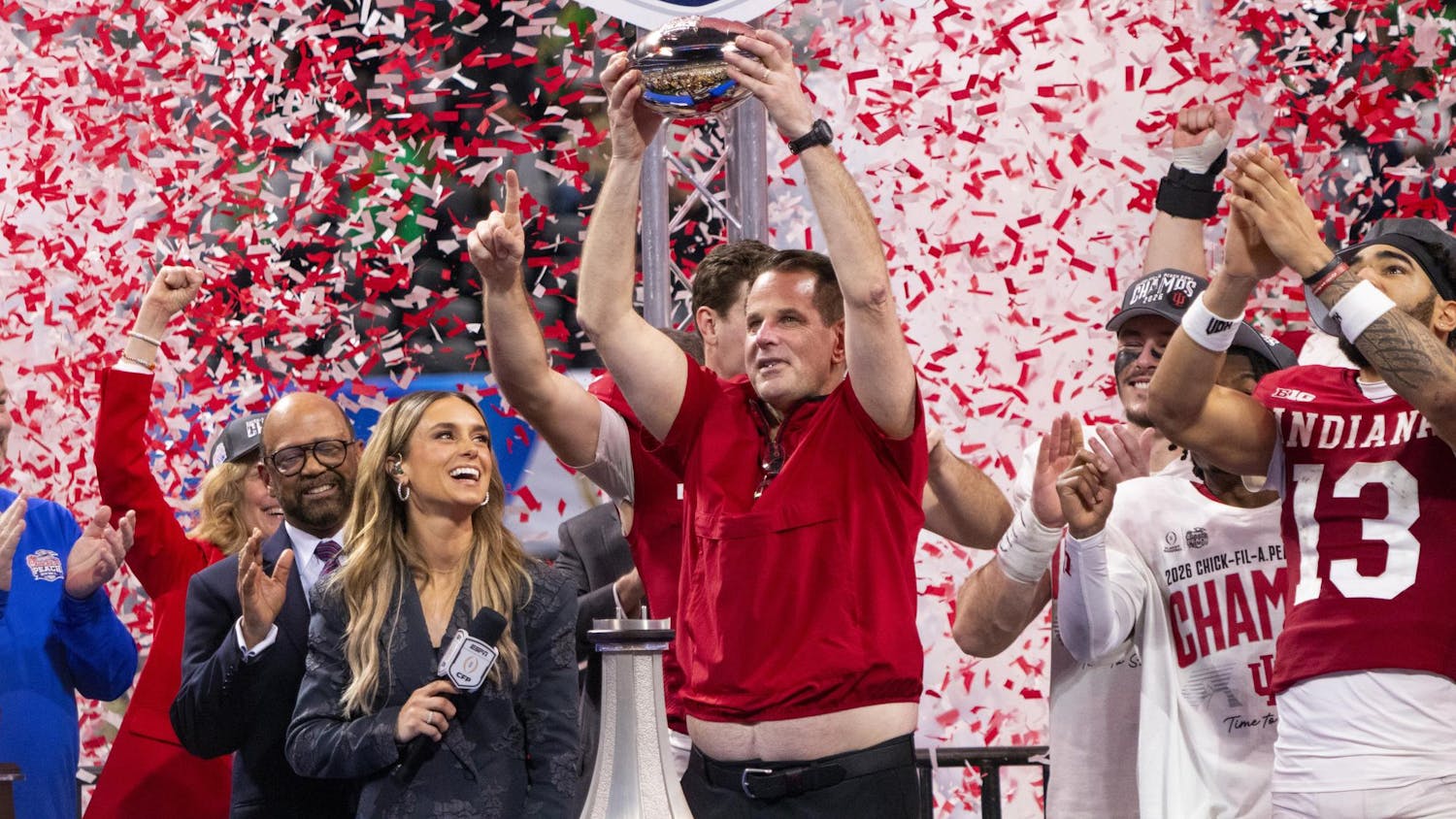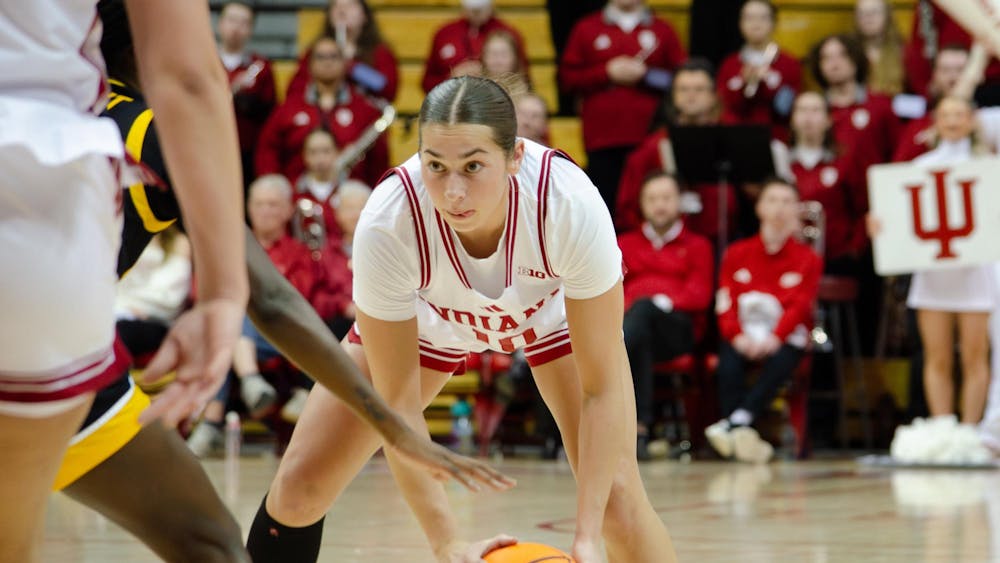After turning down an estimated $50,000 worth of work because he couldn't keep up with the demand, Justin Greis realized he needed help.\nGreis, a 22-year-old MBA student in the accounting program, recruited his buddies -- Dan Jess, Chris Andrus, Dan Veatch and Tyler McPheeters -- to help him start BrainOrbit. The company helps clients with small-scale enterprise resource planning, creating CD-ROMs, Web sites, training and small business solutions.\nFor Greis, it all started the summer before his first year at IU. Greis participated in the Intensive Freshman Seminar and had so much fun that he decided that he wanted to work at IFS the following summer. Greis was paired with Lynn Jamieson, department chair of the recreation and park administration in the School of Health, Physical Education and Recreation. He created a CD-ROM to be used by Jamieson's IFS class. \nNoticing Greis' savvy computer skills, her husband, Steve Wolter, director of the Eppley Institute for Parks and Public Lands, asked Greis to design a few simple Web sites and CD-ROMs.\nGreis continued to develop training programs and course Web sites for about one year. The National Park Service, which runs Eppley, was impressed with his work and continued to offer Greis more projects.\nThis is when Greis turned to friends Jess, Andrus, Veatch and McPheeters. On July 19, BrainOrbit was officially created. \nBrainOrbit specializes in working quickly and efficiently with clients to create high-quality Web sites, with attention to detail for small businesses at an affordable price.\n"Web sites are our generation's way to finding out what services businesses provide," Greis said. Greis also said that he works hard to translate an individual business' "feeling" into its Web site.\n"Our idea of a 'perfect contract' would be a job that brings in about $10-15,000 and takes one month to complete," Greis said. "The site would include front end graphics, back end programming as well as client interaction.\n"Our business is about public perception. Companies want to be well received."\nGreis is CEO of BrainOrbit and spends a good deal of time each day working on his business. He attends class in the mornings and spends his afternoons meeting with clients. His evenings and weekends are spent on schoolwork and working on projects for clients. \n"Sleep is a rarity for the BrainOrbit team," Greis said of the demands of school and work.\nAndrus is an IU senior majoring in accounting and finance. Andrus is BrainOrbit's chief financial officer. \n"One of the good things about BrainOrbit is that there is no overhead, so what we make is basically pure profit," Andrus said. "We work from home and use our own computers."\n"And my dad tries to get us jobs," joked Andrus.\nJess is also an IU senior majoring in marketing. Jess is BrainOrbit's chief marketing officer and is in charge of recruiting clients for the company. He stimulates demand by producing and sending brochures to potential clients. \nMcPheeters is an IU senior majoring in computer information systems. He is BrainOrbit's chief technology officer. McPheeters and Greis met in a programming class. Greis describes McPheeters as, "the smartest programmer I have ever met."\nVeatch, an IU senior majoring in operation management and computer information systems, is BrainOrbit's chief operational officer. Veatch is in charge of internal issues. He is also in the process of re-designing BrainOrbit's Web site. \nBrainOrbit is working for 10-15 clients right now. Between classes, homework, tests and group meetings, the officers of BrainOrbit try to meet each Sunday to discuss their work. In addition to the officers, BrainOrbit works with five full-time independent contractors who work on programming for their clients.\nStarting their own company has provided the BrainOrbit team with important real-world business experience while using the skills that they have learned in the Kelley School, Greis said. He said some of the most important things they have learned so far are how to deal with taxes, how to maximize profits and most importantly how to deal with customers and people in general. \n"In our 'real world' business our clients sometimes call at 2 a.m. freaking out about a misplaced comma. It's hard for us as students," Andrus said.\nAndrus said his accounting classes, in particular financial accounting, has helped him develop the skills he uses most in his job at BrainOrbit. Greis cites his honors I-CORE class as having helped him the most. \n"We created a sushi business from scratch and it helped me in starting my business from scratch," Greis said. \nMcPheeters agreed and said that his X201 Enterprise Technology course helped him prepare for his role at BrainOrbit.\nBut the BrainOrbit team does not see their company lasting forever. Upon graduation, all of the members of BrainOrbit, except for Greis, are looking to work at a "real job." Yet, each member will retain control of their share of the business. Greis hopes that in about two years BrainOrbit will be bought out by a larger corporation. \nThe team agreed that they do not think this will be a problem because none of them put any money into the creation of BrainOrbit. They think this will make it easier to grow away from the company. In the end, the team will have retained valuable experience, money, and most importantly life-long best friends. \n"We understand each other and work well together," Greis said as the other four agreed. "That is what makes our company work"
Students' Web solutions out of this world
5 friends utilize computer skills, take care of business and school
Get stories like this in your inbox
Subscribe





